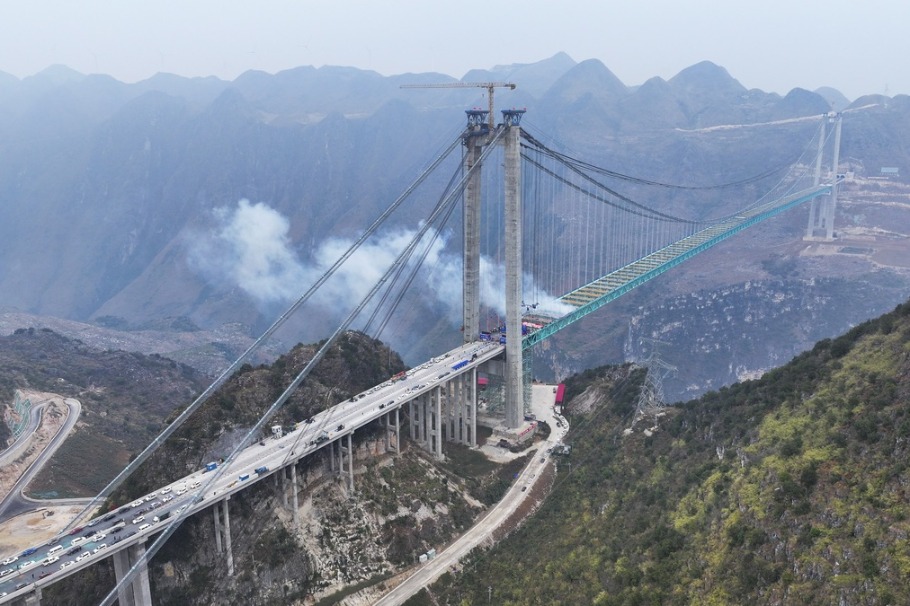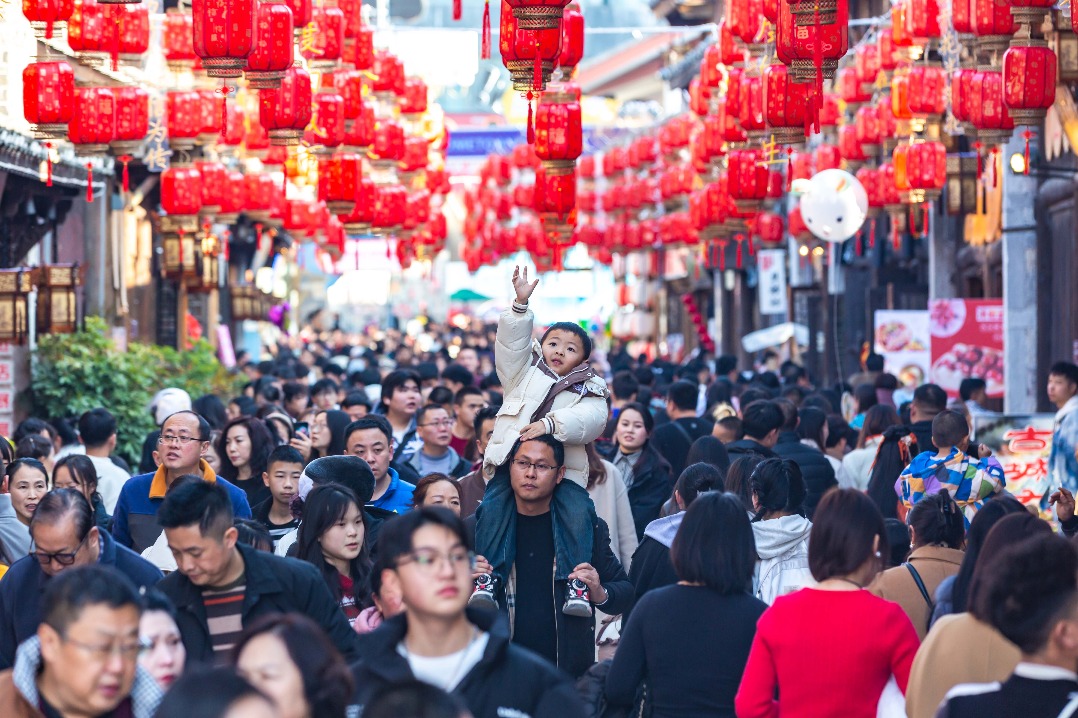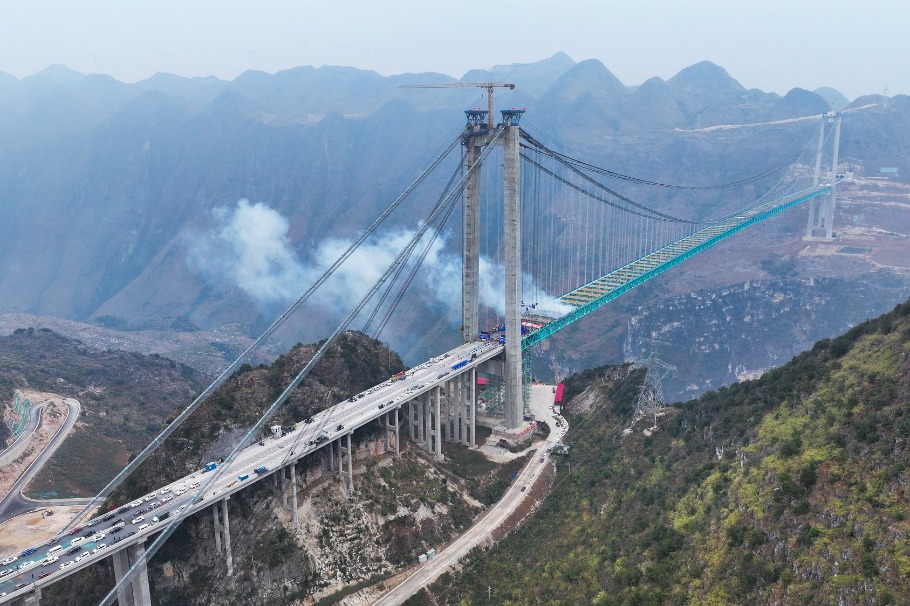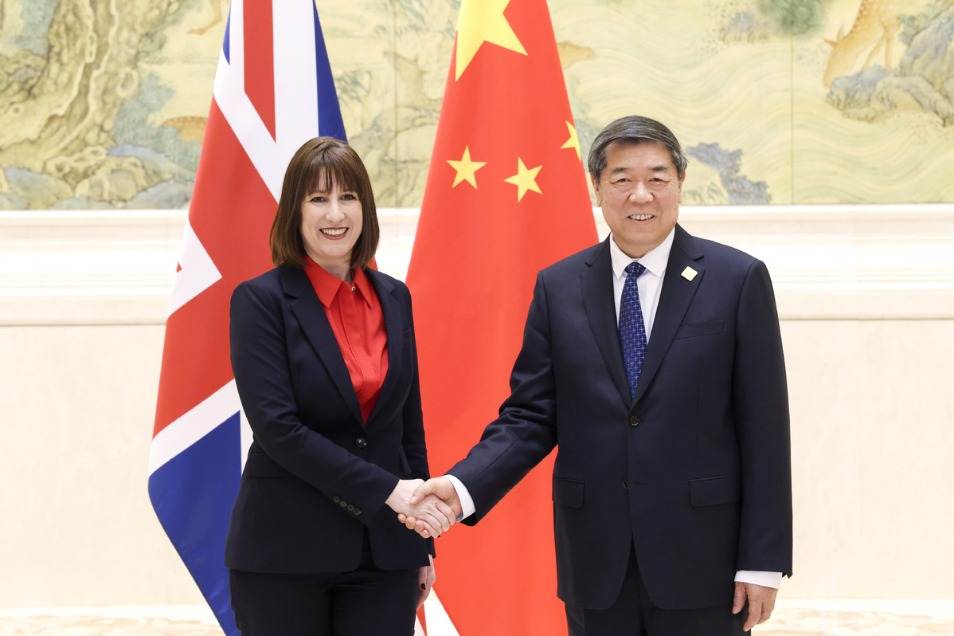World must back WHO to fight outbreak

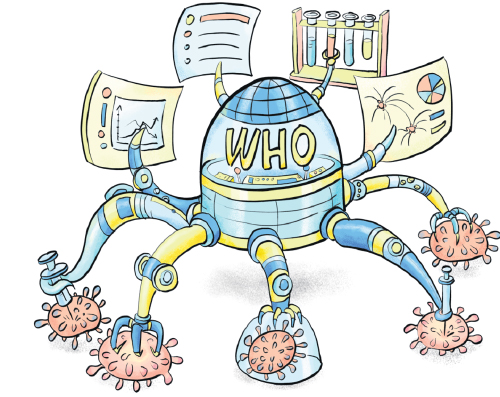
Established in 1948 as the United Nations' first specialized agency, the World Health Organization has played a crucial role in providing global public goods. Especially, in the global fight against the COVID-19 pandemic, its coordinating role is irreplaceable and therefore, it should get the wholehearted support of the international community.
First, the WHO has published many documents to help countries make strategic preparations and response plans. These documents provide guidance on health issues such as quarantining, social distancing, regulating international travelers, closing schools and operating public transportation and workplaces. Through its OpenWHO platform, the organization has also disseminated information on how to save the lives of those on the front line of the global fight.
Second, it provides accurate information and scotches rumors on COVID-19.Amid the global "infodemic", the WHO, thanks to its global network of health professionals and scientists, also issues temporary recommendations, technical guidance, and daily updates.
Third, it ensures vital supplies reach front-line health workers. In fact, it has sent millions of items including personal protective equipment (PPE) and test kits to hundreds of countries-and formed a "UN COVID-19 Supply Chain Task Force", which has dramatically increased the supply of PPEs.
Fourth, it facilitates the development of vaccines and has established mechanisms to ensure poor countries have access to vaccines once they are developed. In February, the WHO brought together 400 leading researchers to identify research priorities, and launched a "Solidarity Trial" to help find effective treatment for the disease, or lower the fatality rate.
The WHO may not have covered every aspect of the pandemic, but it has taken measures to help fill the gaps on the ground in real time. The need for global solidarity and support for the WHO has never been so urgent. Yet the global health body has come under attack like never before; it has even been accused of being "China-centric".Sadly, the United States has not only withdrawn from the WHO, but also removed WHO references from COVID-19 fact sheets and delayed a resolution in the UN Security Council calling for international support to the WHO.
International cooperation amplifies individual countries' efforts-and the pandemic provides a historic opportunity to strengthen the WHO through crucial reforms in six areas.
Vaccine development and distribution. At present, there are more than 180 vaccine candidates for COVID-19, but a vaccine will be most effective only if it is inexpensive and available to all countries. And since cooperation, not competition or "vaccine nationalism", is necessary to expedite vaccine development and distribution, the global community should bolster the WHO's efforts to raise funds for vaccines, and make arrangements to produce enough vaccines. And governments should also work with the WHO and other UN agencies to agree upfront on intellectual property rights protection, procurement and allocation, and universal standards of evidence for vaccine approval.
Continuous and timely data sharing. Reporting about the pandemic should be collaborative in approach, and include the monitoring of mutated virus strains. Efforts to assess the spread and impact of the pandemic will succeed only if information is continuously, rapidly, widely, and freely shared across borders, as reiterated by the WHO. But there are major roadblocks, such as ambiguous criteria for data sharing, and a lack of common methodologies. Overcoming these obstacles requires clear guidance and harmonized standards for health data terminology and exchange.
Knowledge sharing with and support to less-developed countries. The virus has had a profound impact on developing countries, especially less-developed countries, so the international community should work with the WHO to improve such countries' health systems. Having mechanisms for knowledge sharing about protocols for screening and treatment could help, and countries that have got a head start in the fight against the pandemic should offer important lessons and share best practices with other countries.
Better preparing to deal with future pandemics. From 1980 to 2010, the number of infectious disease outbreaks has more than tripled, and the risk of epidemics in the future is high. That's why sound preparedness is crucial to mitigate these risks, including globally coordinated mechanisms such as early warning systems and common protocols for temporary travel and border control restrictions. The international community could also reinforce the WHO's frameworks for emergency preparedness and facilitate research agendas and technology development in domains where market forces are lagging or stagnant (for instance, in vaccine research).
Increased funding to fulfill the WHO's global mandate. The WHO is chronically underfunded. Its 2020-21 biennial budget is just $4.8 billion, about $2 billion less than that of the US Centers for Disease Control and Prevention's annual budget. Worse, it is too reliant on voluntary "donations". Actually, less than a quarter of the WHO's budget comes from mandatory assessments, with the rest coming from voluntary donations. As such, the international community should take measures to ensure the WHO's funding is on a scale commensurate with the its importance for global public health, and empower it to set norms, issue guidance and offer technical assistance on a wide array of health issues.
Enhanced compliance with WHO norms. The WHO, like other international organizations, suffers from limited compliance with norms. There is a long history of member states failing to comply with International Health Regulations and the WHO's recommendations on travel, trade, and quarantine. For example, most countries have not strengthened their core health system capacities as required by IHRs. Therefore, countries should improve compliance with WHO norms.
That a pandemic doesn't respect international borders is a strong enough reason to build a global public health system. And state leaders should reduce geopolitical tensions, putting health and science first, and back the WHO to lead the global response, because without the WHO's leadership, pandemic containment and recovery both would be slow and weak.
The author is director of Center for International Knowledge on Development.
The views don't necessarily reflect those of China Daily.
If you have a specific expertise and would like to contribute to China Daily, please contact us at opinion@chinadaily.com.cn, and comment@chinadaily.com.cn
















